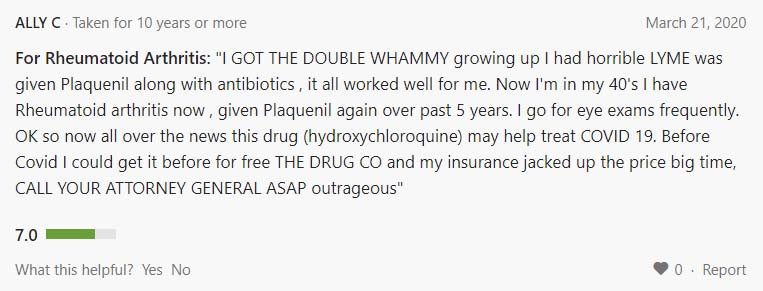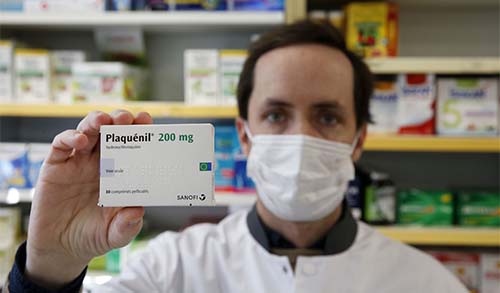
The world is currently suffering from the Novel Coronavirus aka COVID-19 outbreak and researchers all over the world currently busy finding a suitable solution for the ongoing pandemic. One such solution is Hydroxychloroquine, which is being touted as a possible treatment for the ongoing crisis. The drug is currently under study and is not yet approved by the FDA for the COVID-19 treatment. To know more about the drug and its use cases, side effects, warning signs, please read below.
What is Hydroxychloroquine?
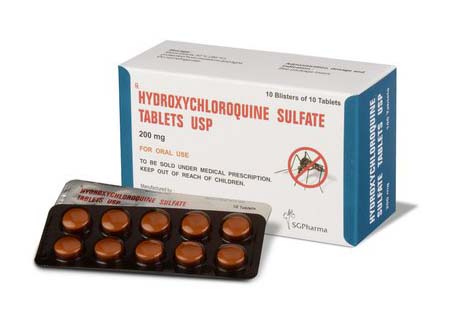
Hydroxychloroquine is a generic prescription medicine used to treat or prevent Malaria; a parasite caused disease that enters the human body through a mosquito bite. Malaria is a common disease in the parts of Africa, South Asia, and South America.
Hydroxychloroquine is also sold under the brand-name of Plaquenil and is also available as a generic version. The drug is often used as a part of a combination therapy meaning you need to consume it with other medicines. Apart from treating Malaria, this generic drug is also used for the treatment of Lupus Erythematosus and Rheumatoid Arthritis and is primarily an oral tablet.
How Does Hydroxychloroquine Work?
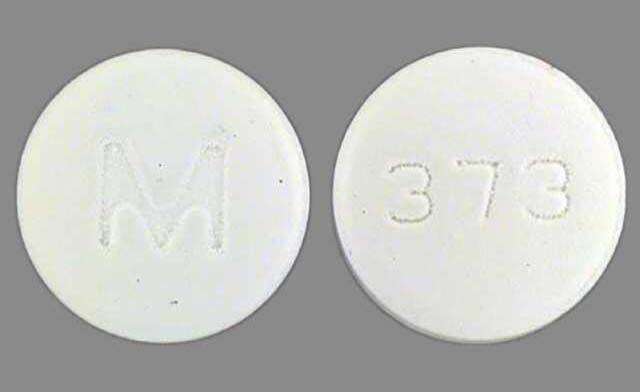
Hydroxychloroquine is an antimalarial drug that treats malaria by killing all the parasites causing the disease. However, it is not fully figured out how the drug treats Lupus Erythematosus and Rheumatoid Arthritis. But it strongly believed that the drug impacts our immune system procedure, which may have a positive impact on their treatment.
In regards to Coronavirus treatment, the drug is still under study with researchers looking into the drug’s potential impact and is still not authorized as a reliable solution for the pandemic. To know more about Hydroxychloroquine and its potential impact on COVID-19 here is a very good video from Medmastery detailing every single information you need to be aware of.
Side Effects of Hydroxychloroquine

Taking Hydroxychloroquine at high doses or for longer duration might cause significant damage to the body and some of them may be permanent. Hydroxychloroquine side effects are easily noticeable and some of them might be severe. Common Hydroxychloroquine side effects:
❋ Dizziness, Diarrhea
❋ Headache, Stomach Pain
❋ Vomiting, Loss of Appetite
❋ Weight Loss, Skin Itching, Hair Loss
These are usually mild Hydroxychloroquine side effects and often go away within a few days or a couple of days. If these symptoms won’t go away with a couple of weeks, then you should look to consult your doctor.
Severe Hydroxychloroquine side effects:

❋ Blurred or altered vision might be permanent in some cases
❋ Heart problems such as heart failure, changes to heart rate, might be fatal in some cases
❋ Hearing loss or ringing in your ear
❋ Rapid swelling of your skin or Angioedema
❋ Mild or serious Bronchospasm
❋ Serious Hypoglycaemia
❋ Bruising or unusual bleeding
❋ Change in skin color
❋ Mental health problems such as suicidal tendencies
❋ Unusual mood swings
All these issues can be fatal and if you are experiencing any of these Hydroxychloroquine side effects then don’t waste your time and consult your doctor right away. You need to treat these serious side effects as a medical emergency and look for suitable treatment immediately.
How to Take Hydroxychloroquine Medicine
Hydroxychloroquine is an oral tablet i.e. to be taken by mouth. For Malaria prevention in adults, two tablets are normally taken once a week the same day every week. The first dose of the medicine is usually taken 1 to 2 weeks before traveling to an area where Malaria is prevalent and after that, regular doses are continued for 8 weeks after the exposure.
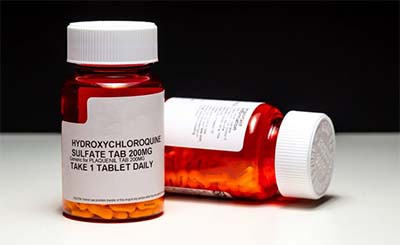
For the treatment of severe Malaria attacks on adults, four tablets are usually taken immediately and then two more tablets after 6 to 8 hours later and after that, two more tablets on each of the next two days. For Malaria prevention in infants and children, the amount of Hydroxychloroquine is decided based on the child’s weight. Your pharmacist will calculate the weight and give you the exact amount of the drug your child should receive. For the treatment of Lupus Erythematosus, one or two tablets are normally taken once or twice every day based on the seriousness of the condition. For the treatment of Rheumatoid Arthritis, 1 to 3 tablets are normally taken once a day.
The drug can be consumed with a glass of milk or a meal to reduce nausea. Follow the instructions given on the prescription carefully and take the amount of Hydroxychloroquine as prescribed neither more nor less, otherwise, consequences might be severe.
Hydroxychloroquine Warnings
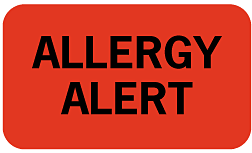
While taking the drug, you need to consider several warnings that come with the drug. Here is a list of some of the warnings.
❶ Allergy Warning
Although it’s rare, the drug may cause some allergic reactions whose symptoms are – swelling, hives, breathing issues, etc. If you develop any of these symptoms while taking the drug, then you need to consult your doctor immediately.
❷ Alcohol Warning
Consuming alcohol can damage your liver affecting the proper functioning of the drug within your body. If you drink alcohol, then it is better to ask your doctor whether you should continue to drink alcohol while taking this drug.
❸ Warning for People with Skin Problems
If you are dealing with skin problems such as Psoriasis and Porphyria, then taking this may worsen your problem.

❹ Warning for Pregnant Women
If you are expecting a child, then stay away from this drug. Studies have shown that this drug can be passed to the unborn child through the mother’s bloodstream during pregnancy.
❺ Warning for People Enzyme Deficiency
This drug may be the reason for red blood cells to break open in people who has low levels of Glucose-6-phosphate Dehydrogenase (G6PD). G6PD is an enzyme, which in turn, a type of protein.
Hydroxychloroquine Reviews
There is no better way to judge the impact of medicine than reading reviews of their past customers. This gives you the assurance of the quality of the drug and its potential outcome when consumed.
The best place to find Hydroxychloroquine reviews is Drugs.com where several Hydroxychloroquine reviews are posted by the users who have taken the drug in the past and offered their honest opinion. These Hydroxychloroquine reviews are quite mixed with both positive and negative reviews. Some of these Hydroxychloroquine reviews are also very well detailed offering a glimpse of what to expect from the drug.
Conclusion
Although the drug is a viable solution for Malaria, Lupus Erythematosus, and Rheumatoid Arthritis, it is yet to become a viable solution for the Coronavirus pandemic. The drug is still unproven, untested, and unapproved for coronavirus patients. Therefore, if you are looking Hydroxychloroquine drug as a possible treatment for COVID-19 pandemic, then you need to wait until proven safe and able to offer the desired outcome for the COVID-19 patients.

